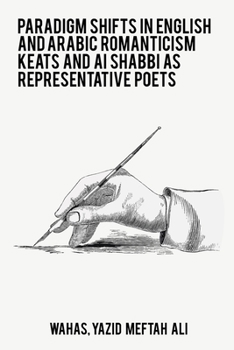Paradigm shift in English and Arabic Romanticism keats and Al shabbi as representative poets
Introduction Romanticism is one of the most significant literary and philosophical movements that flourished in the late eighteenth and early nineteenth centuries. It triggered phenomenal shifts in art, literature, politics, and philosophy. Since its inception, many political events, social conflicts, religious misunderstandings and philosophical ideologies have shaped and influenced Romanticism. As a result, a new paradigmatic change was seen in European history. Then, in turn, these events developed a suitable environment for the rise of Romanticism. It was mainly against the rationalism of the Age of Enlightenment. It shifted emphasis from reason to emotion and rejected the scientific way of life. It claimed to emancipate literature, especially poetry, from the constraints of neoclassicism. Romanticism and revolutions are two closely interlinked terms. English Romantic poets were deeply inspired by the American and French revolutions, which were the mainspring of change in the world, especially of English literature. Thus, Romanticism is an influential movement compared with the classical interpretation of literature and other areas of knowledge; it brought a new way of thinking in the modern world and became the cause of shifts in thoughts and forms. It also brought about a new revolution, a new attitude towards life, and the most important of all, a new brave world. The term Romanticism has an interesting and complicated history that has bewildered scholars and writers to find a precise definition. Edwin Berry Burgum comments, "He who seeks to define Romanticism is entering a hazardous occupation which has claimed many victims" (479). There is ambiguity about the emergence of the term 'romance' and according to the Oxford English Dictionary, the first emergence of the term 'romantic' was in the middle of the seventeenth century. It was derived from the word 'romaunt' which means 'romance' that was borrowed from the French and introduced into English in the sixteenth century. The term has been used in different contexts, and the meaning varies according to each context. Romanticism is not limited to a specific nation, age or culture. Francois Jost remarks, "The multiple meanings of the word romantic are one of the main sources of difficulty in defining.
Related Subjects
Poetry




